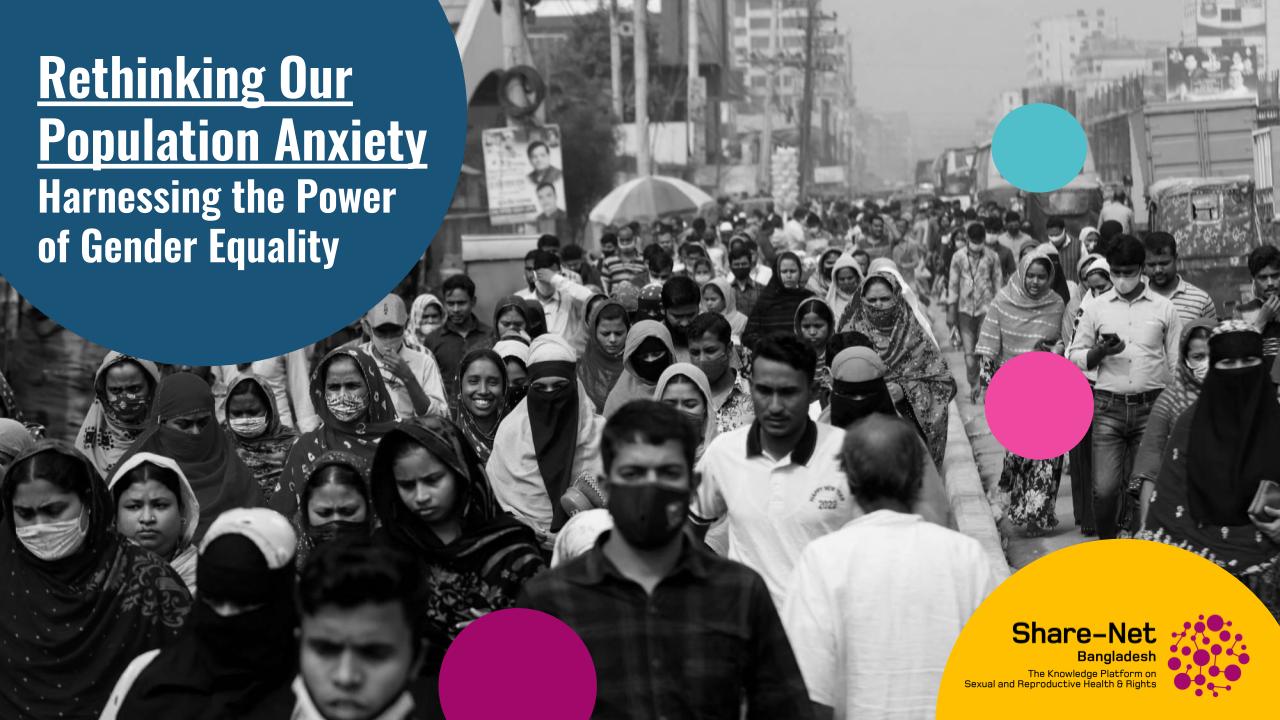Rethinking Our Population Anxiety: Harnessing the Power of Gender Equality
The release of the State of the World Population Report 2023 by UNFPA Bangladesh has ignited discussions surrounding the global population milestone of 8 billion, urging us to question whether it poses an existential threat or an opportunity for growth.
Statistics reveal that Bangladesh, with a population of 169.8 million in 2022, is grappling with unique demographic challenges. The country’s favourable age structure, where 26% are aged 0-14, 68% aged 15-64, and 6% aged 65+, holds immense potential for economic growth and development. However, alarming figures, such as the persistently high rates of child marriage (51%) and intimate partner violence (23%), remind us that progress is still needed to ensure the well-being of all individuals, particularly women and girls.
To address these challenges, we must prioritize the empowerment of individuals to make autonomous decisions regarding their reproductive health. Access to comprehensive sexuality education, contraception, safe abortion, post-abortion care, and infertility treatment should be universal rights. Currently, the contraceptive prevalence rate stands at 64%, but the unmet need for family planning remains at 12%. We must strive to bridge this gap and ensure that individuals can exercise their right to family planning, enabling them to fulfil their desired fertility goals.
It is essential to recognize the diversity of fertility preferences within societies. While some women in Bangladesh may choose not to have children due to concerns about survival, others may desire larger families for security reasons. Instead of imposing societal norms, we should focus on providing the necessary support for individuals to achieve their reproductive ideals while ensuring gender equality and women’s empowerment.
Demographic resilience, as opposed to population control, should be our guiding principle. By investing in comprehensive data collection and analysis, we can move beyond mere population numbers and fertility rates. This means asking the right questions about whether individuals can achieve their desired fertility goals and addressing the root causes of societal challenges such as child marriage and violence against women. Policies that promote sustainable development, human rights, and gender equality will foster resilient societies capable of adapting to changing population dynamics.
In a world plagued by anxiety about overpopulation, it is crucial that we take a reflective approach and challenge prevailing assumptions. Rather than fixating on population targets, we must adopt a new paradigm that prioritizes demographic resilience and individual rights.
Our perception of the world’s population is a reflection of our values and aspirations. Therefore, we must reject the notion that a growing population inherently spells disaster. Instead, let us envision a future of infinite possibilities, one where individuals are empowered to shape their lives and contribute to the betterment of society.
By embracing demographic resilience and recognizing the fundamental rights of every person to decide the number, spacing, and timing of their children, we can build a world that celebrates diversity, equality, and individual agency. The choice lies with us, and the time to act is now.
Source: UNFPA Bangladesh


